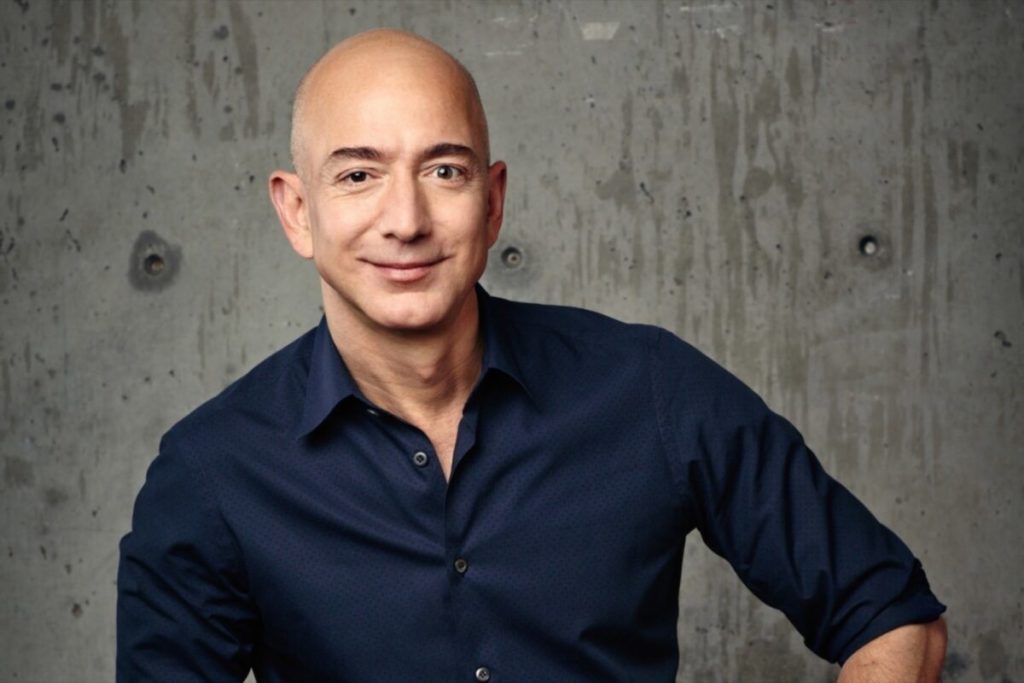Jeff Bezos is stepping down as Amazon CEO

Amazon founder Jeff Bezos on Monday will hand over his chief executive title to Andy Jassy, ending a more than two-decade run leading the company through its evolution from online bookseller to $1.75 trillion global retail, logistics and internet behemoth.
The company announced in February that Bezos would transition from CEO to executive chair, saying he wanted to spend more time on his other ventures, including the Washington Post, space company Blue Origin and philanthropy.
But even as he steps back into a less public role at the company, Bezos will still have tremendous influence at Amazon (AMZN) for years to come, by virtue of being its largest individual shareholder, a longtime mentor to the incoming CEO and his role heading the board.
“He’ll likely still stay involved, though no longer focusing on the day-to-day and instead able to focus on company-wide initiatives and new products and services,” said Daniel Elman, global technology analyst at market research firm Nucleus Research. “His skills for cutting through noise identifying high-value opportunities cannot be overstated … so it would make sense for Amazon to free him from the operational grind to maximize those areas.”
Bezos’ exit as CEO comes at a critical time for Amazon. The pandemic created massive demand for its services, leading to jumps in profits and in hiring. But the company’s explosive growth has only heightened the attention of regulators, some of whom believe it has gotten too big.
Not having the richest man on Earth at the company’s helm could help it better weather some of that scrutiny. And stepping aside could also help insulate Bezos from some lawmaker criticism.
“I’m pretty sure somebody along the way saw [the regulatory attention] and said, ‘Here’s another advantage of this timing,'” said James Bailey, professor of leadership development at George Washington University.
Amazon has also recently faced criticism for its treatment of warehouse workers, something Bezos has pledged to address as executive chair.
“Bezos needs to stop being the lightning rod” on the issue of Amazon’s labor practices, said William Klepper, professor of management at Columbia Business School, “and instead innovate his way out of this.”
The timing of Bezos’ transition in many ways mirrors that of other Silicon Valley founders, for whom giving up the CEO title meant losing much of the harsh spotlight but not necessarily all of the power.
Google’s cofounders, for example, forfeited their executive titles in 2019 amid mounting regulatory scrutiny of the company, but they remain on the board and hold a special class of stock that gives them voting control as shareholders.
Bezos doesn’t have quite the same outsized shareholder voting power, but he remains Amazon’s largest shareholder by a big margin. As of last month, Bezos owned 51.2 million shares — or around 10% — of Amazon common stock, much more than the next largest shareholder Vanguard Group, which holds around 6.5%.
That means if a shareholder initiative seeks to make a major change at the company, Bezos’ voting power could give him some sway in the outcome, said Bailey.
Bezos also will almost certainly continue to have the ear of incoming CEO Jassy. The two have worked closely since the company’s early days. In the early 2000s, Jassy spent time in a position referred to at the time as Bezos’ “shadow,” a role similar to a corporate chief of staff, which was designed to train promising young execs, Ann Hiatt, a former executive business partner to Bezos, told CNN Business in February. Jassy went on to become a longtime member of Bezos’ elite leadership group, the “S-team.”
If there’s a clear model for what Bezos’ role change might look like at Amazon, it could be the other Seattle-based tech founder who previously held the title of world’s richest man.
When Bill Gates stepped down as CEO in 2000, Microsoft was one of the world’s most powerful companies, but it was also in the midst of a years-long antitrust battle and facing the possibility of being broken up by the US government. At the time, Gates was seen as a ruthless monopolist, but his focus on philanthropy in the following years helped him cultivate a different reputation as a global do-gooder, all while he maintained a leadership role at Microsoft (MSFT) for two decades — until last year.
Source: CNN
Contact Us
The US Armenians promotes businesses, advertising, collaborates, lists jobs, buys and sells products, and many more ideas. We would like to hear your thoughts and feedback, so please feel free to contact us through direct message, or via email at theusarmenians@gmail.com
If you have any questions/concerns about our website/social media platforms, feel free to contact us via email and we will get back to you as soon as possible.
For business/collaboration inquires, feel free to email us, and please in the Subject enter “BUSINESS”.
Thank you!
-
Email:theusarmenians@gmail.com
-
City:Los Angeles

